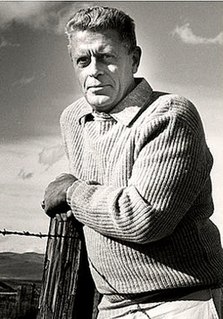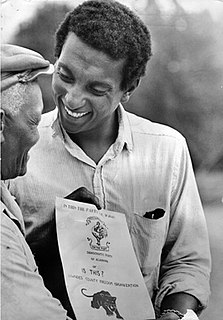A Quote by Pierre Trudeau
I think that the only ultimate guide we have is our conscience, and if the law of the land goes against our conscience I think we should disobey the law.
Related Quotes
Must the citizen ever for a moment, or in the least degree, resign his conscience to the legislator? Why has every man a conscience, then? I think that we should be men first, and subjects afterward. It is not desirable to cultivate a respect for the law, so much as for the right. The only obligation which I have a right to assume is to do at any time what I think right... Law never made men a whit more just; and, by means of their respect for it, even the well-disposed are daily made the agents of injustice.
True law, the code of justice, the essence of our sensations of right and wrong, is the conscience of society. It has taken thousands of years to develop, and it is the greatest, the most distinguishing quality which has developed with mankind ... If we can touch God at all, where do we touch him save in the conscience? And what is the conscience of any man save his little fragment of the conscience of all men in all time?
We may gamble on outsmarting the law; we may even gamble on the leniency of man and the mercy of God-but no man ever won a gamble with his own conscience. Even should he think he has beaten his conscience into submission, his misdeeds still leave their mark upon him. Anyone who gambles against this fact has already lost his gamble.
The study of law can be disappointing at times, a matter of applying narrow rules and arcane procedure to an uncooperative reality; a sort of glorified accounting that serves to regulate the affairs of those who have power--and that all too often seeks to explain, to those who do not, the ultimate wisdom and justness of their condition. But that's not all the law is. The law is also memory; the law also records a long-running conversation, a nation arguing with its conscience.
Since natural law was thought to be accessible to the ordinary man, the theory invited each juror to inquire for himself whether a particular rule of law was consonant with principles of higher law. This view is reflected in John Adams' statement that it would be an 'absurdity' for jurors to be required to accept the judge's view of the law, 'against their own opinion, judgment, and conscience.'
Struggling against the legalism of simple obedience, we end by setting up the most dangerous law of all, the law of the world and the law of grace. In our effort to combat legalism we land ourselves in the worst kind of legalism. The only way of overcoming this legalism is by real obedience to Christ when he calls us to follow him; for in Jesus the law is at once fulfilled and cancelled.
Just as the law in civilized countries assumes that the voice of conscience tells everybody, "Thou shalt not kill," even though man's natural desires and inclinations may at times be murderous, so the law of Hitler's land demanded that the voice of conscience tell everybody: "Thou shalt kill," although the organizers of the massacres knew full well that murder is against the normal desires and inclinations of most people. Evil in the Third Reich had lost the quality by which most people recognize it - the quality of temptation.











































